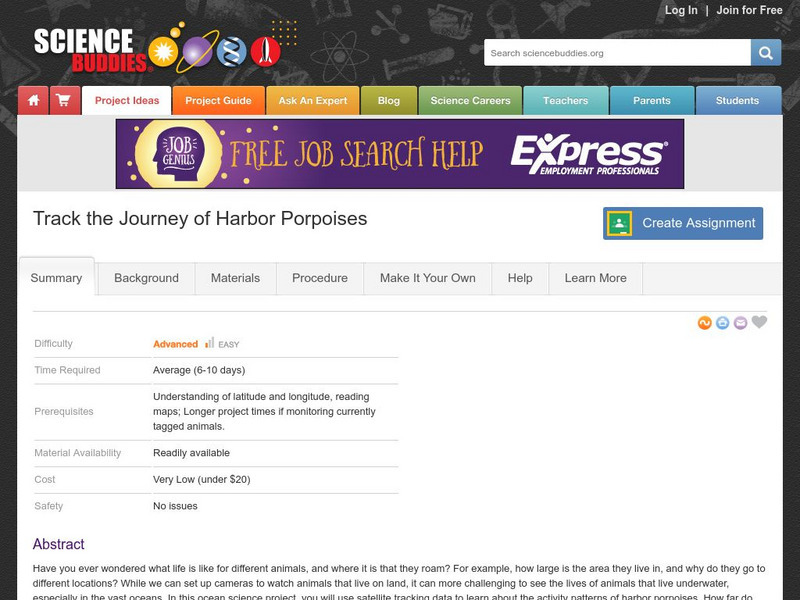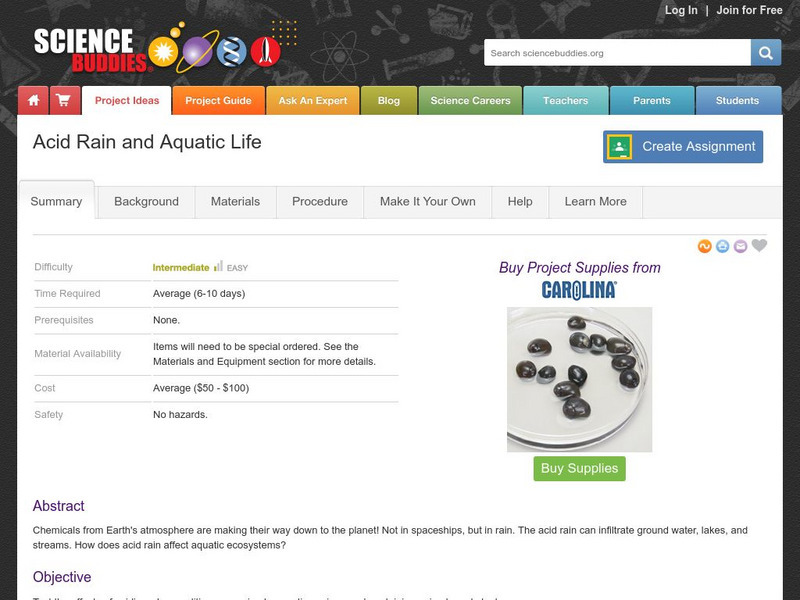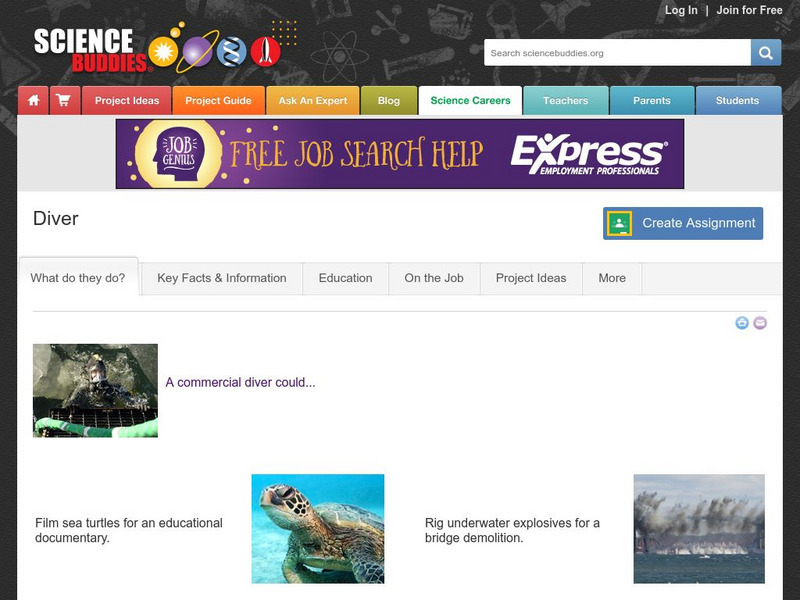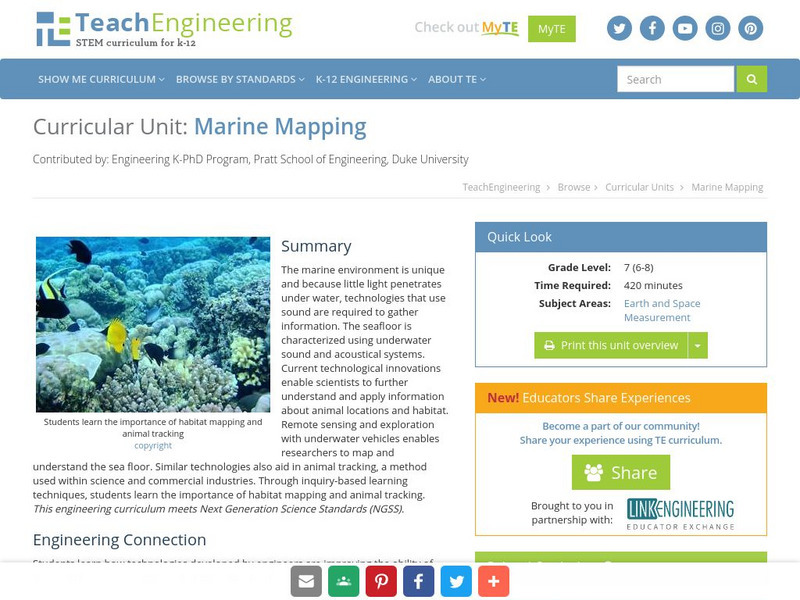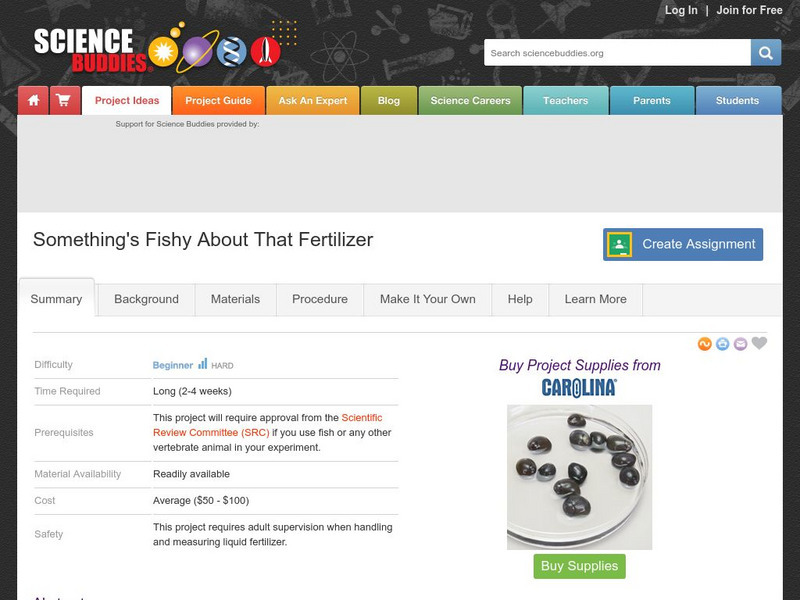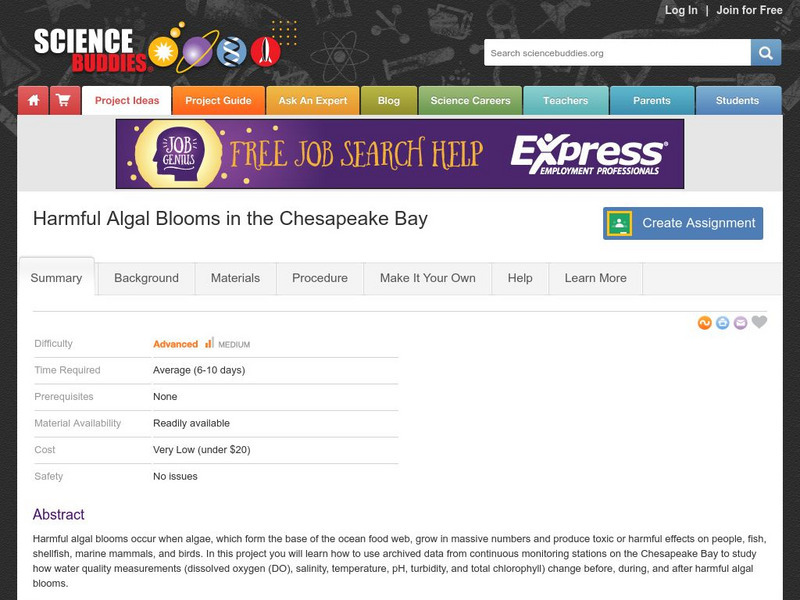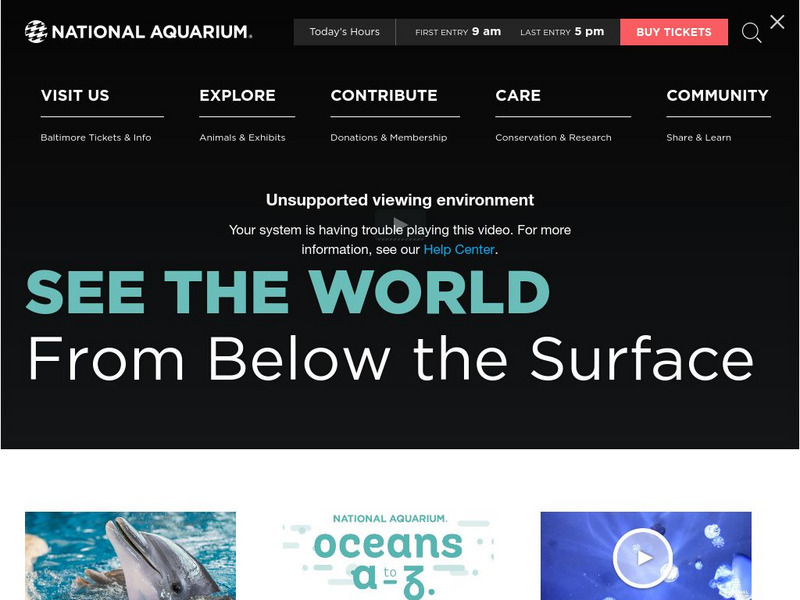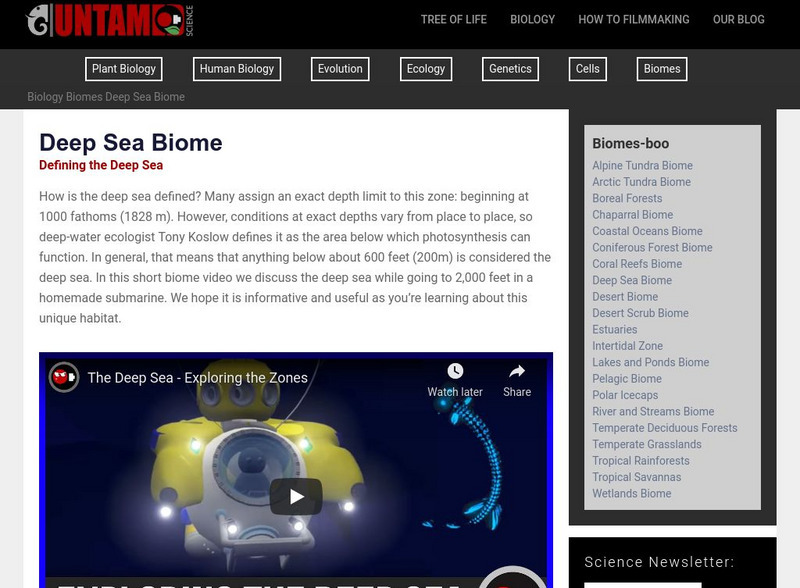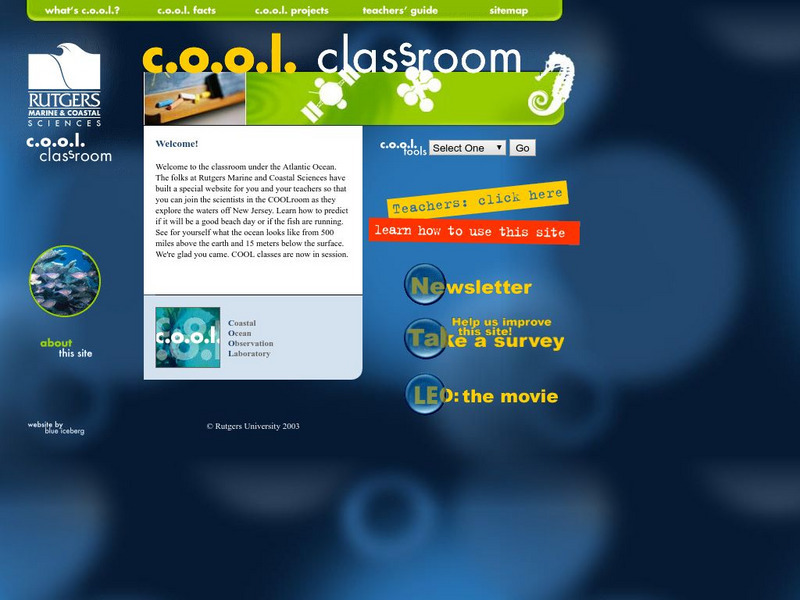Science Buddies
Science Buddies: Harbor Porpoise Movement
In this project you can use archived satellite tracking data to learn about activity patterns of harbor porpoises. How far do they travel? Can you find patterns in the routes individual animals take? Can you correlate their route with...
Science Buddies
Science Buddies: Swimming in Acid: Understanding Ocean Acidification
The oceans are a precious natural resource, part of Earth's carbon cycle. But what happens if the oceans absorb too much carbon dioxide? Many scientists are concerned that the increased absorption of carbon dioxide is causing them to...
Science Buddies
Science Buddies: I'm Trying to Breathe Here! Dissolved Oxygen vs. Temperature
To survive, we need oxygen in the air we breathe. Oxygen is also essential for most aquatic organisms, but there is much less oxygen available in water than in air. Learn how to measure dissolved oxygen and then see how oxygen...
Science Buddies
Science Buddies: Acid Rain and Aquatic Life
Chemicals from the Earth's atmosphere are making their way down to the planet. Not in spaceships, but in rain. The acid rain can infiltrate ground water, lakes, and streams. How does acid rain affect aquatic ecosystems?
Science Buddies
Science Buddies: Career Profile: Diver
What fun to have a career as a scuba diver! Find out about the life of a commercial diver and the options open in such a career. This Science Buddies site lays out the requirements needed to become a commercial diver, as well as the...
Science Buddies
Science Buddies: Heavy Metals and Aquatic Environments
You might know that lead can be toxic, and that you can get lead poisoning from eating or inhaling old paint dust. Lead is called a heavy metal, and there are other sources of heavy metals that can be toxic, too. Silver, copper, mercury,...
Science Buddies
Science Buddies: Home Sweet Biome: How Do Plants Grow in Different Environments?
In this science fair project you will learn about biomes and how different climatic conditions affect plant growth. This can explain why some plants and animals are similar in different areas of the country, and in other parts they are not.
NOAA
Noaa: Nmml: What Is Marine Mammal Science?
Besides career information about marine biology, site includes information about studying marine mammals and the National Marine Mammals Laboratory. Check out the marine mammal section then test what you learn with the marine mammal quiz.
Georgia Department of Education
Ga Virtual Learning: Marine Vertebrates
Learn about vertebrates found in the ocean, their individual methods of adaptations, identifying characteristics and contributions to the marine ecosystem.
Georgia Department of Education
Ga Virtual Learning: Marine Invertebrates
Students learn about invertebrates found in the ocean, their individual methods of adaptations, identifying characteristics, and contributions to the marine ecosystem.
TeachEngineering
Teach Engineering: Marine Mapping
The marine environment is unique and requires technologies that can use sound to gather information since there is little light underwater. The seafloor is characterized using underwater sound and acoustical systems. Current...
Society for Science and the Public
Science News for Students: Ocean Animals Have Mushroomed in Size
Article reports on the increasing size of ocean animals over the millenia. Includes a list of key vocabulary.
Science Buddies
Science Buddies: Something's Fishy About That Fertilizer
Did you know that when you use fertilizer in your garden, it can eventually reach a lake, stream, or pond? There are many different chemicals present in fertilizers. Learn how they affect the aquatic organisms in the ecosystem within...
Science Buddies
Science Buddies: Harmful Algal Blooms in the Chesapeake Bay
Harmful algal blooms occur when algae, which form the base of the ocean food web, grow in massive numbers and produce toxic or harmful effects on people, fish, shellfish, marine mammals, and birds. In this project you will learn how to...
Woods Hole Oceanographic Institution
Woods Hole Oceanographic Institute: Undergraduate Resources: Marine Careers
What does an oceanographer do and study? This site looks at what marine scientists and students do and the research expeditions they take part in.
Other
National Aquarium in Baltimore
In addition to a variety of pre-visit and post-visit lessons for classroom teachers, the aquarium also provides (at a reasonable fee) classroom visits to enhance student understanding of marine life.
Museum of Science
Museum of Science: Looking at the Sea
There are 5 parts to this resource. You can click on the water planet, oceans in motion, life in the sea, scientists at sea and resources. There are also activities for teachers.
BBC
Bbc: New Marine Life Found in Deep Sea Vents
Six new animal species are identified at deep-sea vents beneath the Indian Ocean. Find out what new creatures are stirring in the sea.
American Geosciences Institute
American Geosciences Institute: Earth Science Week: Monitoring Life in the Rocky Intertidal Ecosystem
This activity will allow students to learn the sampling techniques used in the field by citizen scientists who participate in LiMPETS, five national marine sanctuaries along the West Coast.
Alabama Learning Exchange
Alex: Diverse Life Forms of the Ocean
This lesson allows students to view and draw conclusions on the importance of life in the ocean. It uses student created movies to explore what is going on, as well as identifying the zones and diverse life associated with the oceans....
Society for Science and the Public
Science News for Students: Motion in the Ocean
This article reports on recent research that explains why corals are in nearly constant motion. Includes a brief video. [0:16]
Untamed Science
Untamed Science: Biology: World Biomes: Deep Sea Biome
Read about the different zones and life in the deep sea as well as watch videos and examine photos of this aquatic biome. [5:54]
Other
Rutgers Marine & Coastal Sciences: Cool Classroom
Students and teachers can explore the work of marine scientists and observe the ocean from their computers. Learn about Rutgers Coastal Ocean Observation Laboratory, discover why oceanography is important, and see what life is like in...
CK-12 Foundation
Ck 12: Life Science: Aquatic Biomes
[Free Registration/Login may be required to access all resource tools.] Aquatic biomes can be generally classified based on the amount of salt in the water. Freshwater biomes have less than 1% salt and are typical of ponds and lakes,...
